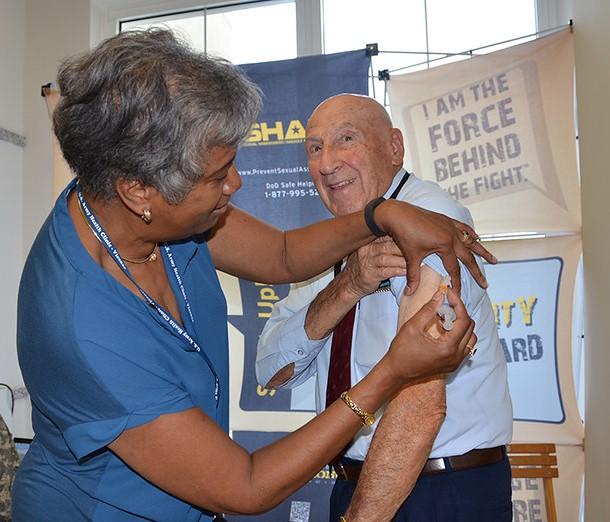In the first study of its kind, a head-to-head comparison of three flu vaccines targeted to seniors against the standard vaccine found that enhanced versions produce better immune response, which may translate to better protection.
The three newer vaccines, two that have higher doses of antigen and one that contains an immune-boosting adjuvant, produced a better immune response than the regular version of the flu vaccine. The authors, though, are careful to say that immune response doesn't guarantee clinical protection.
However, the findings are promising and lay the groundwork for more efficacy trials that could shed light on any clinical advantages the new products might have over regular flu shots.
The study was conducted in Hong Kong by a team from the University of Hong Kong and their colleagues at the US Centers for Disease Control and Prevention (CDC). The findings appear today Clinical Infectious Diseases.
People age 65 and older at known to be at greater risk of flu complications, in part because the immune system weakens with age. In any given flu season, seniors account for the highest number of flu hospitalizations and deaths. The new flu vaccine formulations aimed at people age 65 and older are designed to provide an extra boost in the face of declining immune function.
Comparison findings
For the study, 1,861 adults ages 65 to 82 were randomly assigned to receive the standard quadrivalent (four-strain) flu vaccine or one of three newer options developed for seniors, including the high-dose trivalent (three-strain) vaccine (FluZone) that contains four times more antigen, the trivalent MF59-adjuvanted vaccine (FluAD), and the quadrivalent recombinant cell-based vaccine (FluBlok) that has three times more antigen.
Participants were immunized from October 2017 to January 2018 and received vaccines containing strains recommended for the 2017-18 Northern Hemisphere flu season.
All three of the newer vaccines are available in the United States. Earlier studies have shown that they prompt a better immune response in older people, but none have compared all of them during the same year, using the same vaccine components, and among people in the same age-group.
The study found that, when compared to standard vaccine, all three senior formulations triggered an improved immune response based on antibody levels against 2009 H1N1 and H3N2 flu strains. Participants who got the standard vaccine had a 3.4-fold antibody increase to the H3N2 vaccine component, compared with a 4.2- to 4.7-fold increase in those who received one of the enhanced vaccines.
The researchers saw only one significant difference among the three enhanced vaccines: seniors who received the recombinant higher-dose vaccine had a higher antibody response to the cell-like H3N2 virus that was similar to the H3N2 strain that was circulating in the community.
Response to the influenza B Victoria strain in the vaccine was similar among all vaccines, but antibodies were a little higher in those who got high-dose vaccine.
Groundwork laid for efficacy trials
The CDC said today in a news release that although increased antibody response doesn't guarantee better protection against flu, the improved immune response the researchers found against H3N2 in those who got the enhanced vaccines may be especially important for older adults. Recent seasons dominated by H3N2 have been linked to higher mortality and hospitalization rates in seniors, the agency added.
Though the new study's findings are consistent with individual studies that pitted a newer flu vaccine against the standard version, more studies are needed to directly compare each vaccine's ability to prevent clinical illness, the CDC said.
"This study lays the groundwork for future efficacy trials and effectiveness studies on enhanced vaccines in older adults and can help in planning for those more definitive evaluations and anticipating the differences in efficacy/effectiveness that might plausibly be expected," the CDC said.
The CDC's Advisory Committee on Immunization Practices (ACIP) has a flu vaccine work group that regularly monitors new research developments with flu vaccines. The work group regularly reports back to the full group on issues such as flu vaccine formulations for seniors. However, it has never recommended a preference for one vaccine over another for older people.
In its statement today, the CDC said people shouldn't wait to be vaccinated if they can't find a certain formulation. The United States is experiencing an early start to the flu season, with activity especially brisk in southern and western states, as well as some parts of the Northeast. It notes, however, that studies like today's might steer the evolution of future recommendations.
See also:
Dec 12 Clin Infect Dis abstract
Dec 12 CDC press release




















